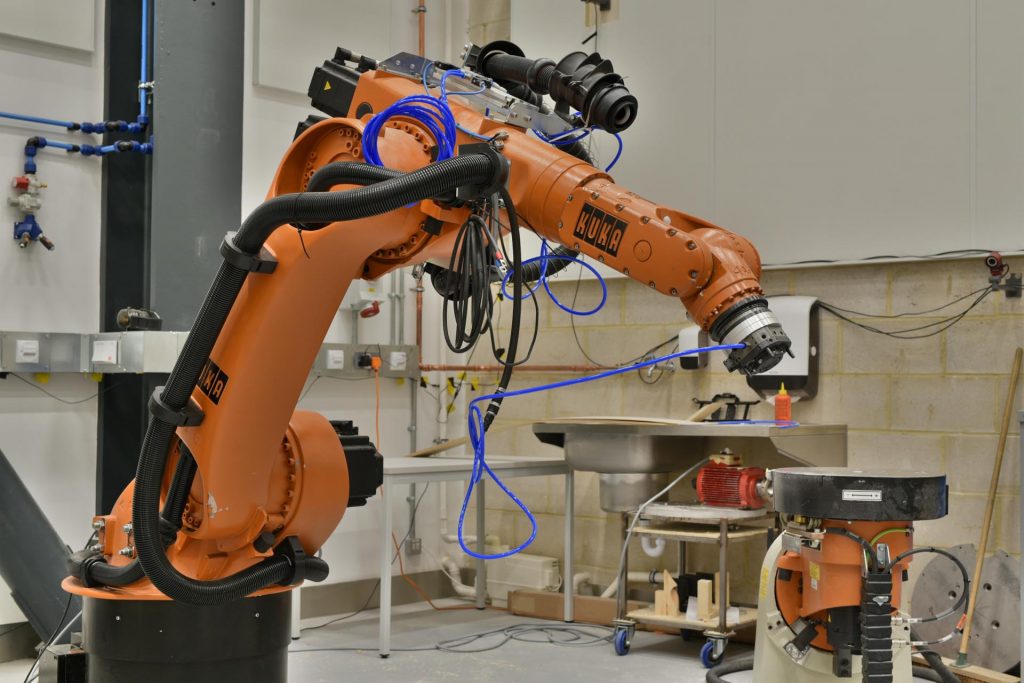The next Digital Architecture open lecture will be given by Dr Christopher Leung from The Bartlett School of Architecture with his talk titled, ‘Digital fabrication: Dialogue through manufacturing processes’ on Tuesday 12 February at 6pm in Marlowe Lecture Theatre 1.
Architects have become accustomed to designing the physical fabric of buildings using digital tools. However, in an age of advanced manufacturing where there are possibilities enabled by the adoption of robotics and automation that are now widely available to architectural practice, architects are increasingly designing processes as much as components and assemblies. In this shift, architects can have a role to “Design for” aspects of these processes, where a given process can be for “Assembly”, “Disassembly” or “Measurement” to name a few.
Reflecting on the “Design for” considerations found in other industries such as automotive and aerospace, this lecture surveys a selection of the possibilities now afforded by digital fabrication and considers the implication for design options at the interface between digital representation and processes of making. These are presented through a series of case-study projects that have been carried out in collaboration with other educators, researchers and industry practitioners as well as current work at the Bartlett.
Christopher Leung trained as an architect at the Bartlett with experience in architectural and environmental design practice. He completed his engineering doctorate at UCL on passive variable performance facades. He is the programme director of the Masters in Design for Manufacture at UCL Here East, the new centre dedicated to making based at Stratford in east London.
He has worked on government-funded research projects into low-energy building technology, proof-of-concept build projects and post-doc research on the environmental evaluation of bio-receptive concrete. He has taught at the Bartlett in the Interactive Architecture Lab, BiotA Lab and the M.Sc in Architectural computation. He also carries out research into solar activated materials including bi-metals and shape memory alloys for novel applications in the facades of buildings to improve energy performance in collaboration with leading industry partners.
All welcome!

